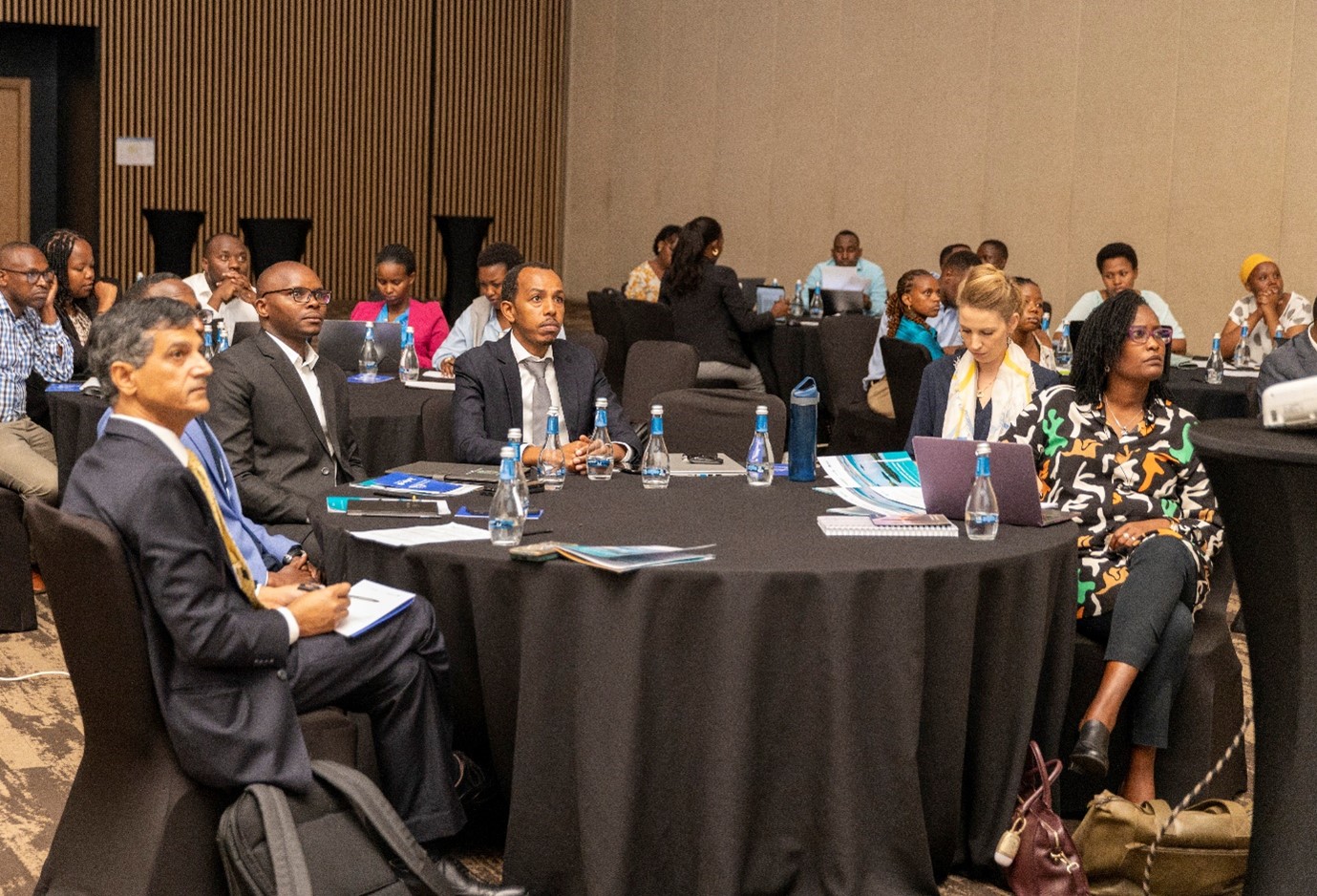During the event, Mr. George Sanga, the Regional Coordinator at Global Water Partnership Eastern Africa, expressed gratitude to the Rwanda Water Resources Board for leading the process and creating an enabling environment for stakeholders to come together. George emphasized the importance of integrating climate resilience into water management and commended Rwanda for producing a comprehensive strategy with a financing plan ready for implementation. He also called all development partners to support the strategy financially and technically, noting that it is a fundable and bankable initiative that aligns with national development goals. He highlighted the unique integration of institutions and processes in the development of this response strategy, showcasing a country-owned program that is government-led with all stakeholders on board. Mr. George thanked the UK Foreign, Commonwealth and Development Office (FCDO) for funding this program and expressed appreciation for the continued collaboration.
Rosalind Gater, the Deputy Development Director at UK FCDO in Kigali commended the Government of Rwanda for supporting the initiative, emphasizing that water security, sanitation, and hygiene are key to global prosperity and sustainable development.
Gater also showed the impact of water-related natural disasters and the increasing demand for water worldwide. She praised the collaborative efforts of the Global Water Partnership and stressed the importance of inclusive partnerships to achieve national and international water goals. She also emphasized the importance of collaboration among development partners and national leadership to drive progress in water resilience.
Mr François Tetero, the Chairperson of the Global Water Partnership Eastern Africa, Regional Steering Committee said that “In a world where water is the cornerstone of peace and prosperity, the Global Water Leadership Programme contributed to fostering collaboration and innovation to ensure a prosperous and water resilient country. Hence this is a commitment to bring together diverse stakeholders in a shared mission to protect and sustainably develop and manage our precious water resources.”
Mr. Evariste Nsabimana, the Deputy Director General of the Rwanda Water Resources, in his remarks, thanked development partners for their support in developing this response strategy. He commended Global Water Partnership for their tireless efforts in advancing water resilience in Rwanda and emphasized the need for collective action in addressing challenges related to sustainable water management in the face of changing climates. The Deputy Director General outlined key strategic actions within the response strategy, including centralizing water entities and users, mainstreaming water resilience into land-use planning, promoting sustainable land management, and disseminating knowledge and practices to communities which align with Rwanda Water Resources Board Strategic plan 2021-2030. He called for a collective resolve to leverage water as a source of prosperity and peace, addressing challenges of both flooding and water scarcity in Rwanda.
It important to note that the processes of developing this response strategy started in 2022, by identifying the bottlenecks that are impending IWRM in Rwanda. Subsequently, four working groups were formed composed by experts from Government institutions, Academia, Private sector, CSOs, INGOs, and Youth Organisations which conducted a deep analysis of the root cause and developed this response strategy. This response strategy is composed by four components such as: (i) Empowering decentralized entities and water users for effective water infrastructure management, (ii) Mainstreaming water resilience into land use plans & establishment of flood forecasting systems, (iii) Promoting sustainable land management to prevent siltation of water bodies, and (iv) Disseminating knowledge on sustainable water management practices.
